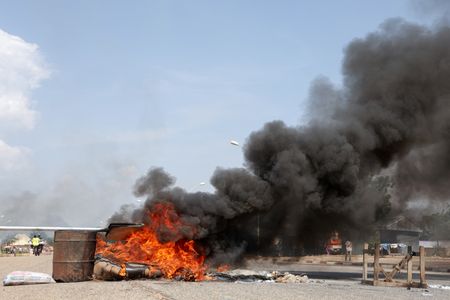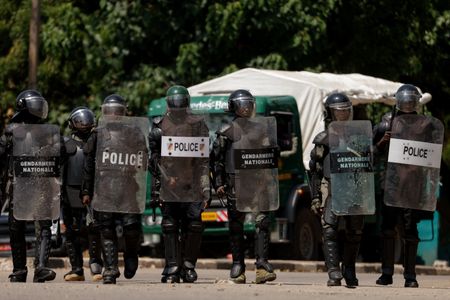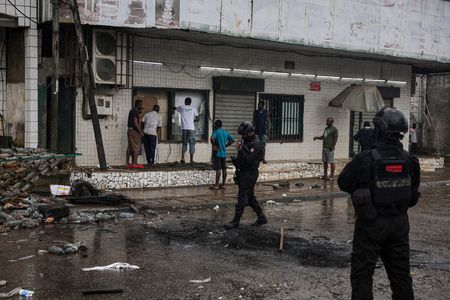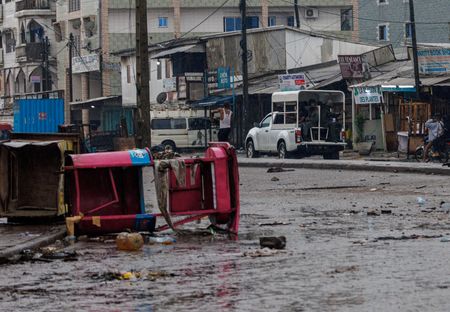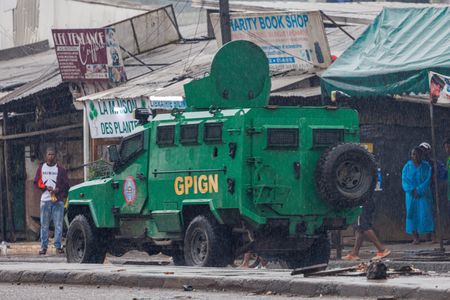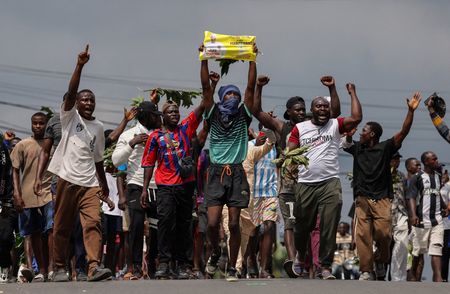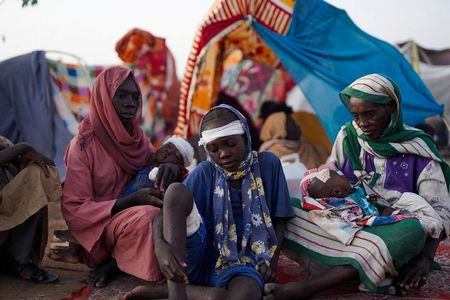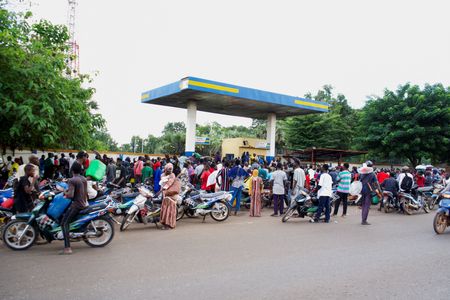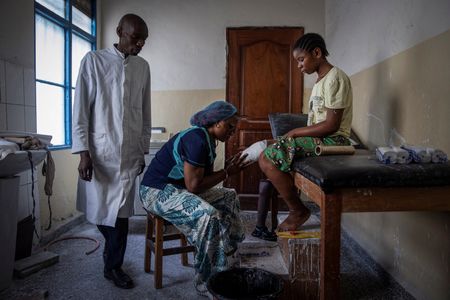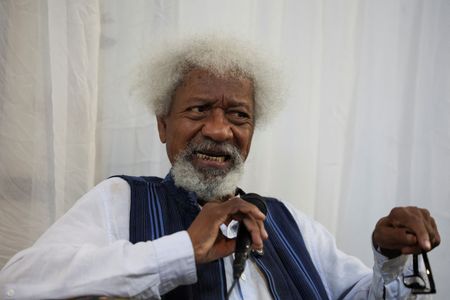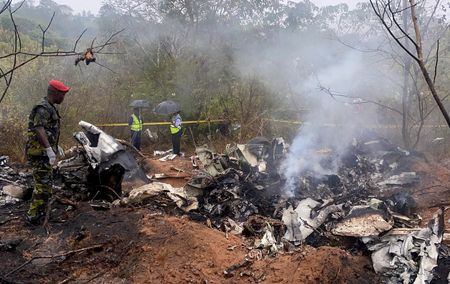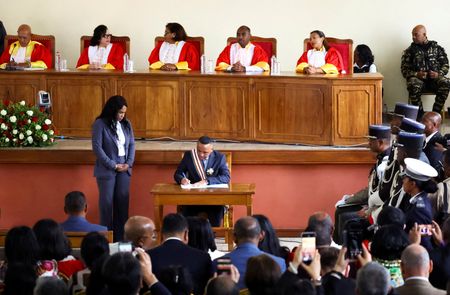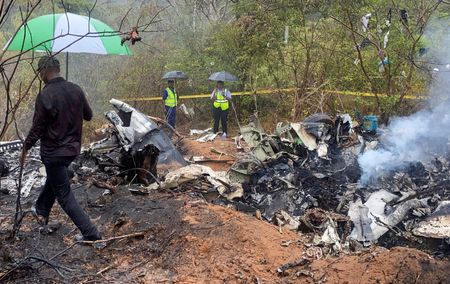By Bate Felix and Ngouda Dione
DOUALA (Reuters) – Cameroon’s opposition leaders rejected presidential election results that extended President Paul Biya’s rule for another seven years, saying the outcome did not reflect the will of the people in a country already battling a separatist conflict.
The central African nation’s constitutional council on Monday declared Biya, 92, as the winner of the disputed vote with over 53% of the ballots, triggering violent protests in several cities in the oil- and cocoa-producing nation.
The court’s ruling, which is final and cannot be appealed, signals a potentially prolonged post-election standoff.
Issa Tchiroma Bakary , Biya’s main challenger, had earlier declared victory and warned he would not accept any other outcome. His supporters have angrily taken to the streets, clashing with riot police and blocking roads in the commercial capital Douala with burning tires and debris.
The protests killed at least four people over the weekend and two others on Monday, according to the opposition.
There were scattered celebrations in Biya’s strongholds and government ministers held a party. The usually bustling streets of Douala remained quiet on Tuesday as rain and riot police kept protesters away.
The European Union expressed “deep concern” about the recent violent repression of protests and called on authorities to tackle the excessive use of force. It also urged leaders to engage in dialogue to preserve national stability.
OPPOSITION FIGURES ALLEGE WIDESCALE FRAUD
Other opposition leaders have alleged widespread fraud, accusations rejected by the government.
Akere Muna, a prominent lawyer and former presidential candidate, condemned the process as fraudulent and accused the Constitutional Council of being “nothing more than the rubber stamp of a tyranny.”
Muna, whose name appeared on the ballot despite dropping out 11 days earlier to join a rival coalition, said the election reflected the will of a decades-long system designed to maintain power. He cited implausible turnout figures in English-speaking regions embroiled in a separatist conflict since 2017 as evidence of fraud.
“What we experienced was not an election worthy of a Republic,” said Tomaino Ndam Njoya, the sole female candidate, who finished fifth.
“It was a confiscation of the people’s choice by interests that reject transparency in the democratic process. I solemnly reject these results,” she added in a statement late on Monday.
Cabral Libii, who finished third, congratulated Biya on his victory.
In Douala, which has seen some of the most violent protests over the past week, residents were braced on Tuesday for another day of unrest. But bad weather and armed police appeared to have mostly dispersed small groups of protesters by the early afternoon on Tuesday.
Jean-Pascal, a resident of Douala, described Paul Biya’s re-election as “a stolen victory,” saying the people had rejected the government, which has failed to deliver progress in over four decades.
“The people did not choose …Paul Biya. This government has brought us nothing. For 43 years — since I was born — this government has been in place. And it has brought us nothing. Nothing at all,” he said.
(Reporting by Bate Felix and Ngouda Dione; Editing by Jessica Donati, William Maclean)

